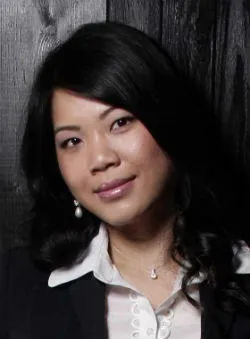Please note: this event has passed
Speaker: Dr Mimi Zou
*If you are external to King’s and would like to attend this event, please contact the event organiser.
In the debates on law and development in China so far, there has been considerable attention paid to the so-called “Rights Hypothesis”, which emphasise the role of a formal legal system in offering secure and stable property and contract rights. Such a hypothesis has influenced a vernacular of ideas relating to certain “institutional prerequisites” that underpin the Washington Consensus, including a legal order that would promote market efficiency and economic growth. Some argue that China’s economic development has largely taken place without such prerequisites, such as a strong property rights regime or robust formal contract laws and enforcement institutions. However, those who have sought to debunk the “Rights Hypothesis” in China have said relatively little about the role of social rights, such as labour standards, anti-discrimination, and social security protections (commonly seen by advocates of the Washington Consensus as “market-distorting”).
This talk by Dr Zou explores how the Chinese state has adopted legal and institutional arrangements in the realm of social rights to support the marketization of the economy and curb the socially destabilising effects of market reform. She refers to this proposition as the “Social Rights Hypothesis”. An important aspect of social rights are the rules and institutions that govern the relationship between labour and capital, particularly in countervailing the inequality of bargaining power inherent in such a relationship. In developing this hypothesis, she examines how labour laws and institutions have co-evolved with changes in China’s labour market as part of the country’s economic reform over the past four decades. Dr Zou specifically looks at the market-constituting, market-correcting, and market-limiting functions of labour law in China’s economic development.
First, a set of legal rules and institutions underpinned the commodification of labour in China, which became part of the constitution of a labour market operating closer to those of modern capitalist economies. Second, various aspects of Chinese labour law, such as minimum wage regulations, have sought to correct market outcomes that lead to negative externalities. Third, worker-protective legislative reforms over the past decade have been aimed at limiting the market in the interest of ‘harmonious labour relations’, which the party-state deems crucial to maintaining social stability. In reformulating and problematising the “Rights Hypothesis”, her goal is to offer a novel theoretical approach to understanding the multifaceted functions of social rights in debates on law and development in China and elsewhere.
Dr Mimi Zou holds the first academic appointment in Chinese law at the University of Oxford, where she has the role of developing the subject as a new field of study and research. Dr Zou’s award-winning research focuses on Chinese and comparative employment and commercial law. She regularly provides expert commentaries on Chinese law-related issues for international media outlets including The New York Times, BBC, The Guardian, Reuters, China Daily, and South China Morning Post. Dr Zou is currently a special adviser of the Great Britain China Centre and a distinguished expert member of the Asia Society Policy Institute Belt and Road Initiative Taskforce. She obtained her law doctoral and master’s degrees with distinction from the University of Oxford and economics, social science, and law degrees with first class honours from the University of Sydney. She is a qualified Australian and English lawyer with over 15 years of experience in international organisations, law firms, government departments, non-governmental organisations, and academia. Prior to her present role at Oxford, Dr Zou held academic appointments at Columbia Law School, the Chinese University of Hong Kong, Utrecht University, and the University of Sydney. She is currently a visiting law professor at Tsinghua University and Peking University. She was named by the Asia Society as an ‘Asia 21 Young Leader’ and recently selected as a finalist for the 2019 Asian Women of Achievement Awards.

Event details
6.04Bush House South East Wing
Strand, London WC2R 1AE
